February Policy Updates: Budget Updates, Advocacy Efforts, and Legislative Anticipation
In this Edition:
⏳ Don’t miss out on the latest updates and announcements regarding the 2024 NCUIH Annual Conference, registration, and award nomination details.
🔎 Dive into the latest updates on the FY 2024 budget and upcoming FY 2025 budget release, including advocacy efforts to protect IHS funding.
📋 Join us for our upcoming webinar on February 28: “Urban Voices Amplified: Empowering Native Votes” and explore Get Out the Vote resources.
🏛 Stay informed on NCUIH’s policy priorities for 2024, as outlined in the recently released Policy Assessment, and the key issues shaping advocacy efforts for urban Natives.
✍ Discover NCUIH’s active engagement in various events and initiatives, including representation at important receptions and legislative launches.
📆 Mark your calendars for crucial upcoming events, and federal agency comment opportunities, including consultations/confers on Native health care, behavioral health, and more.
2024 NCUIH Annual Conference Registration & UIO Award Nomination
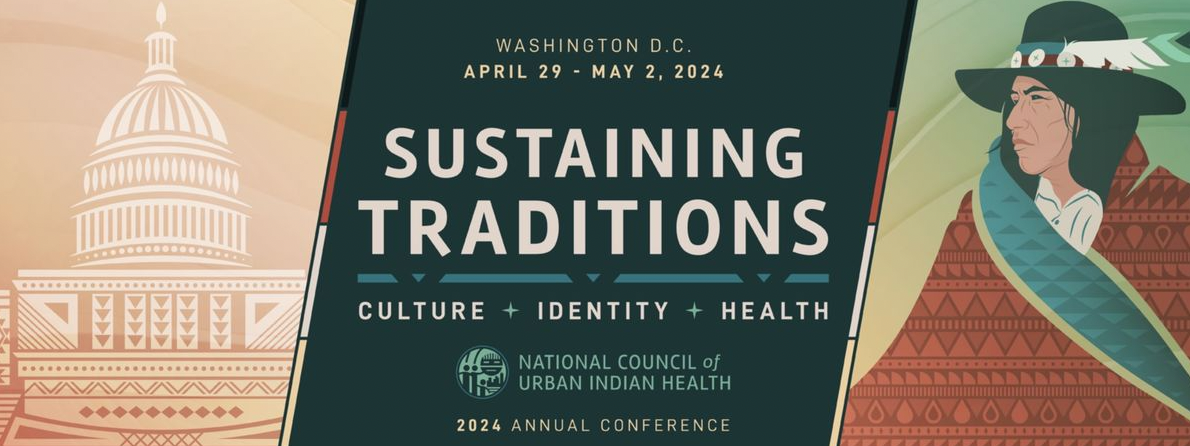
Register now before rates go up in March!
Sponsorships: Several different sponsorship levels remain. If you are interested in sponsoring the conference, please see our sponsor guide.
Room Reservations: The negotiated room rate of $369 per night (plus tax) for single/double occupancy rooms is available until April 5, 2024. We encourage you to book your room soon to secure this special rate. To make your reservation at the Hilton Washington DC Capitol Hill, click here to access the room block.
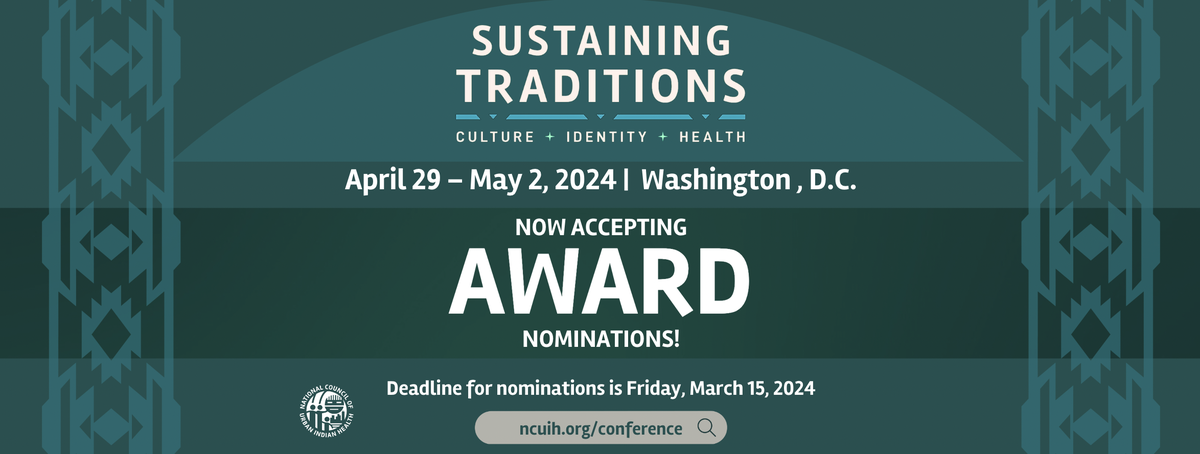
As part of our commitment to uplifting Native excellence, NCUIH is seeking nominations for individuals and or organizations who have made remarkable contributions to the field of urban Indian health. We invite you to nominate candidates for the following prestigious awards:
- UIO Staff Member of the Year Award;
- UIO Visionary Award;
- Urban Indian Legacy Award; and,
- Tribal Leader Impact Award.
Awards will be presented during the NCUIH Annual Conference on April 29-May 2, 2024, in Washington, D.C. Visit the conference website for further details on the nomination process. The deadline for submissions is Friday, March 15, 2024.
Budget Update: FY 2024 Deal Reached, FY 2025 Anticipated Budget Release
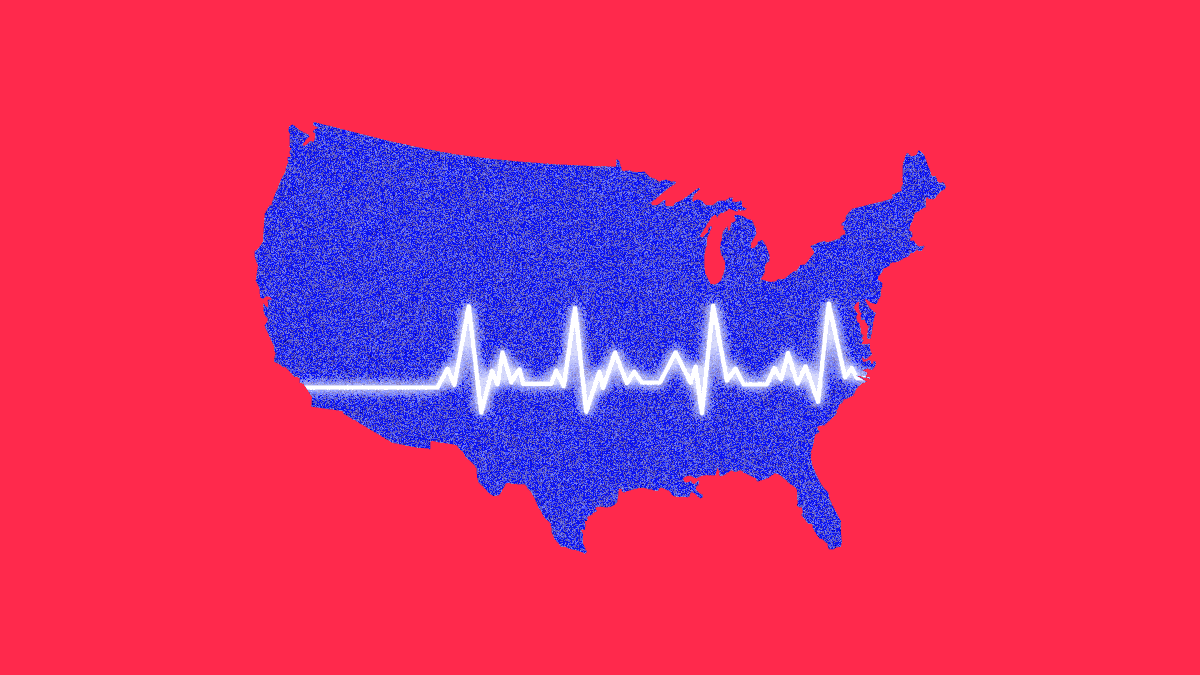
Fiscal Year 2024 Budget Status:
- On January 27, top Appropriators announced a deal had been reached on the allocation for FY 2024 spending bills.
- On January 29, NCUIH sent a letter to Congressional leadership to request that IHS be protected from sequestration in the funding bill.
- What’s next: Congress is in recess until February 28, and they will have three days to pass a CR or budget deal.
Fiscal Year 2025 Budget Status:
- Release of President Biden’s FY 2025 Budget is anticipated between March 11-15.
- NCUIH signed on to the Partners in Health and Association of American Indian Physicians letter to House and Senate Interior-Environment Appropriations Subcommittee Leadership in support of the inclusion of $30 million new funding to address chronic clinical staff shortages across Indian Country through Graduate Medical Education (GME) programming in the FY2025 Interior, Environment, and Related Agencies appropriations bills.
Urban Voices Amplified: Empowering Native Votes in Collaboration with the National Urban Indian Family Coalition
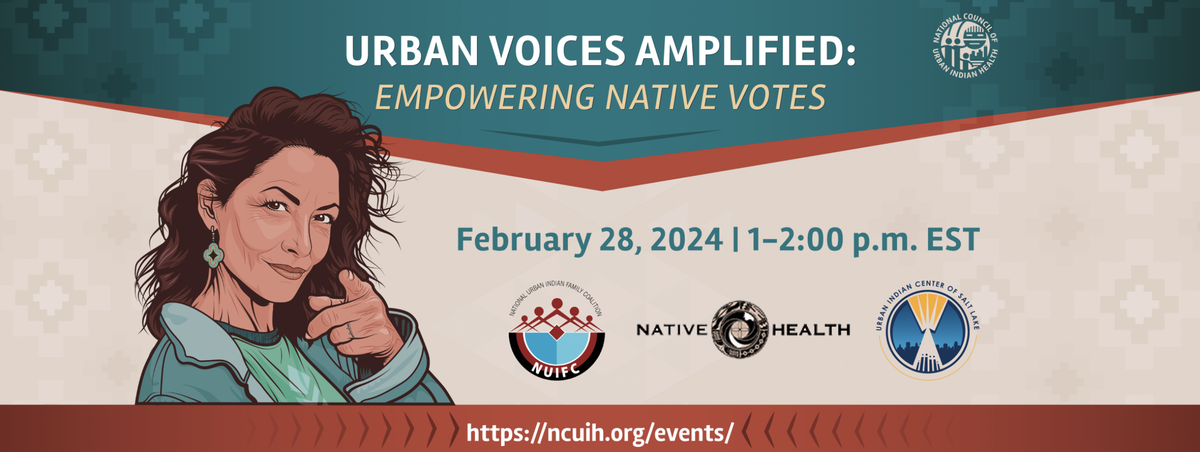
February 28, 2024 | 1:00 – 2:00 p.m. EST
Join us on February 28th, 2024, for a webinar hosted by the NCUIH Policy team.
- In collaboration with the National Urban Indian Family Coalition (NUIFC) and UIO partners, we will delve into vital topics related to Get Out the Vote (GOTV) and mobilizing Native votes.
- This event will focus on key strategies and information essential in an election year, addressing the significance of Native American civic participation.
- Why it matters: Be part of an insightful discussion about voter registration, mobilization efforts, and the pivotal role Native voices play in shaping our communities during this important electoral season. Don’t miss out on this opportunity to engage in the dialogue that impacts us all.
NCUIH Releases 2023 Annual Policy Assessment
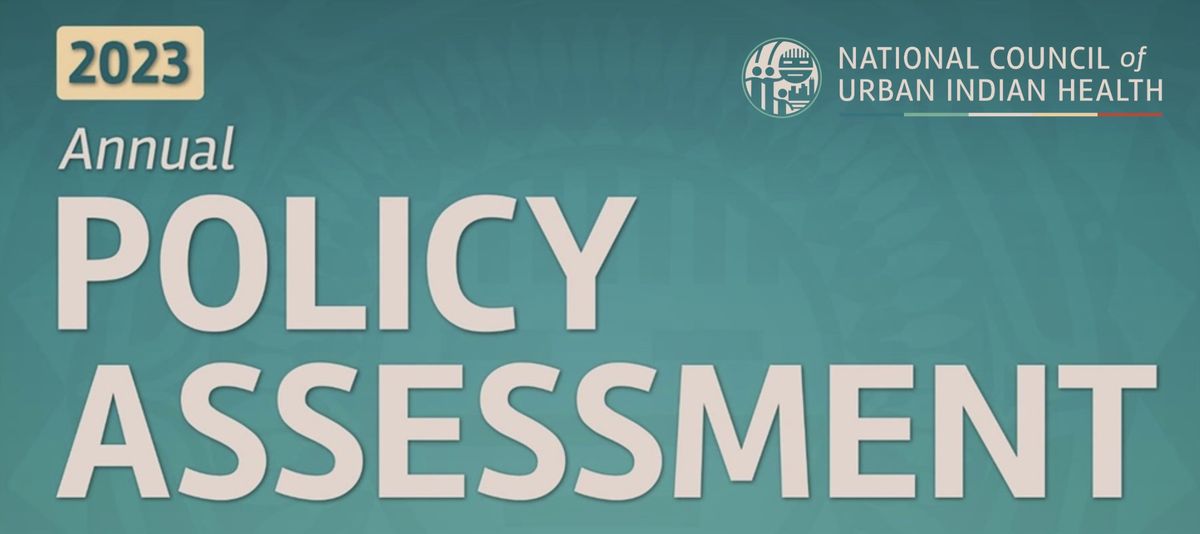
On January 25, 2024, NCUIH released its 2023 Policy Assessment which includes findings from focus groups held with UIO leaders and helps set NCUIH’s policy priorities for 2024. Key findings include:
- Funding is a Key Focus and Challenge
- UIOs Need More Diverse Resources to Address Food Insecurity
- Workforce Recruitment and Retention is a Concern Amid a Competitive Market
What else?: NCUIH hosted a Policy Preview Webinar for UIO leaders:
Watch the webinar to hear about the findings of NCUIH’s 2023 Policy Assessment and for a comprehensive understanding of the key issues shaping advocacy efforts and influencing the policy landscape for urban Native health in 2024.
NCUIH in Action: State of Indian Nations, Meetings on the Hill, HRSA Maternal Health & Mortality Initiative Launch, & More
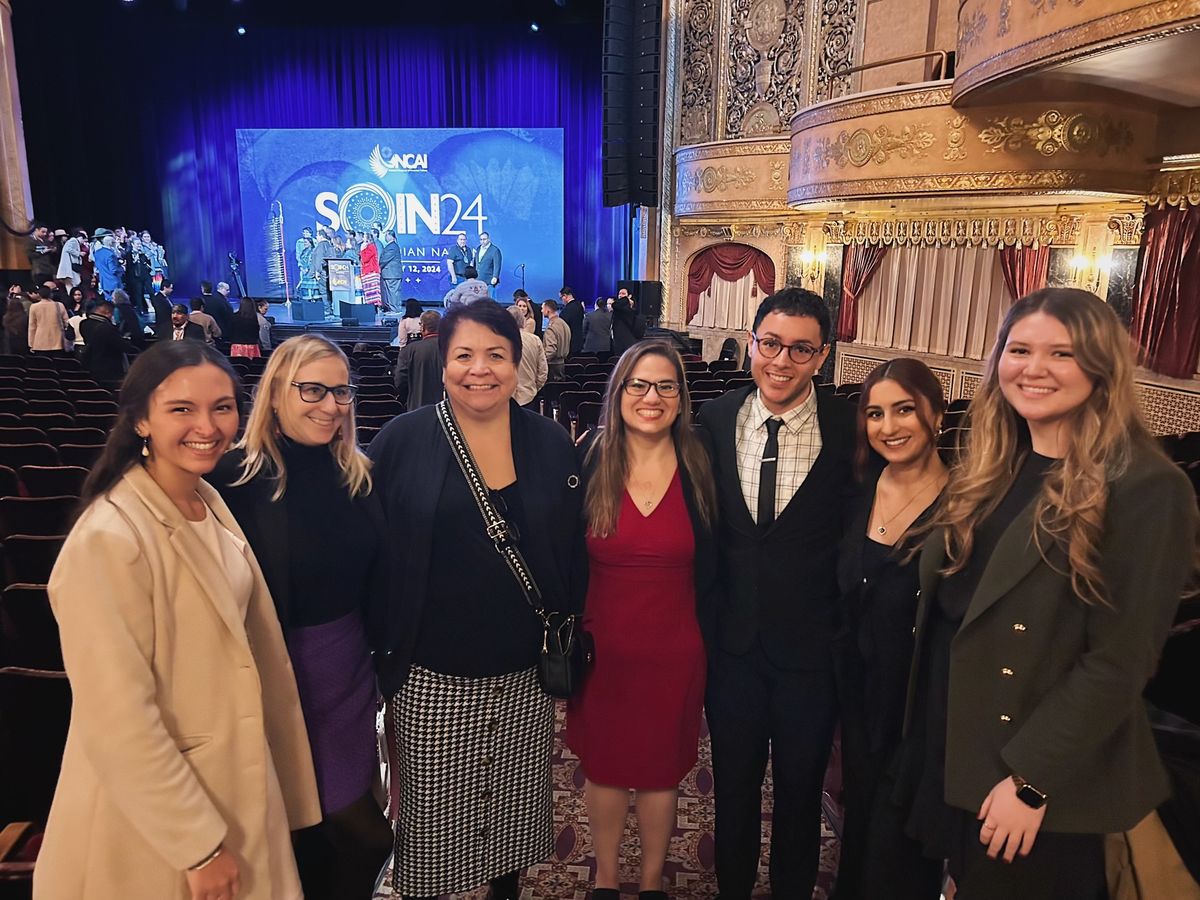
Earlier this month, NCUIH attended the 2024 State of Indian Nations Address hosted by the National Congress of American Indians!
- We were inspired by the powerful words of Tribal leaders, elders, and especially the passionate youth who spoke about their visions for a brighter and more equitable future.
- Together, we’re committed to working towards unity, progress, and opportunity for all Native people.
On February 15th, NCUIH worked with the National Congress of American Indians & National Indian Health Board to facilitate and staff Congressional meetings for Tribal Leaders and provided talking points on the issue of 100% Federal Medical Assistance Percentage (FMAP) for UIOs.
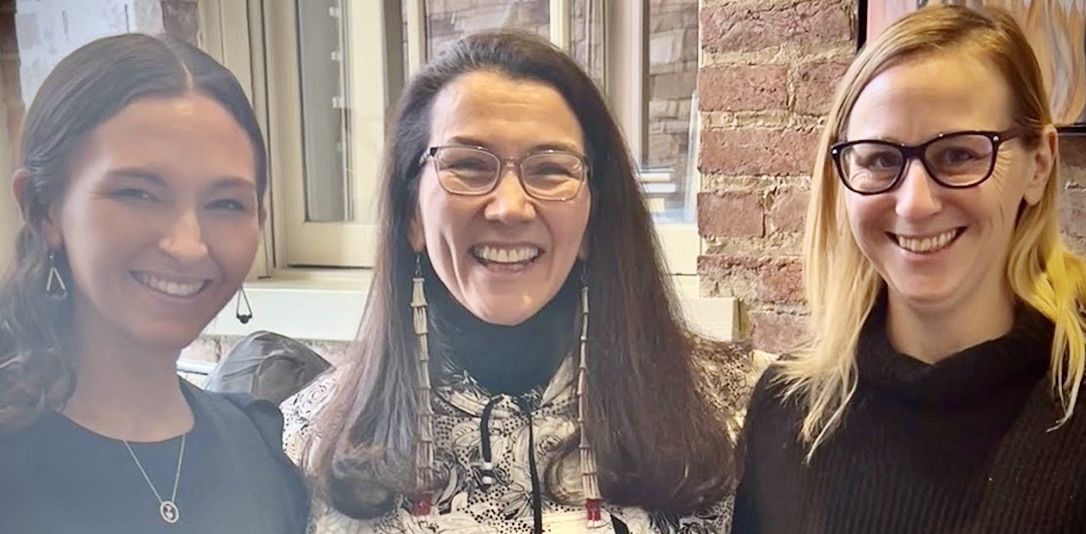
NCUIH Policy Analyst, Emily Larsen, Representative Mary Peltola (D-AK), NCUIH VP of Policy and Communications, Meredith Raimondi.
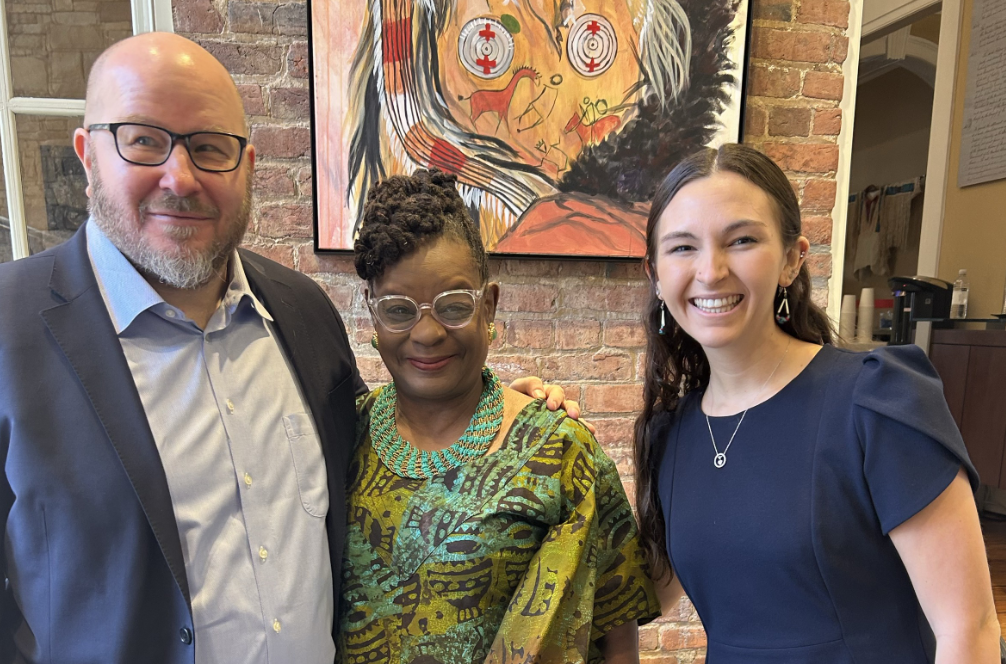
Sean Gard, Rep. Moore Chief of Staff, Representative Gwen Moore (D-WI), NCUIH Policy Analyst, Emily Larsen.
On February 14, NCUIH represented UIOs at the National Native American Boarding School Healing Coalition (NABS)’s lunch & learn with Congressional Native American Caucus Co-Chairs, Reps. Tom Cole (Chickasaw) (R-OK-04) and Sharice Davids (Ho-Chunk) (D-KS-03) regarding the Truth and Healing Commission on Indian Boarding School Policies Act of 2024 (H.R. 7227).
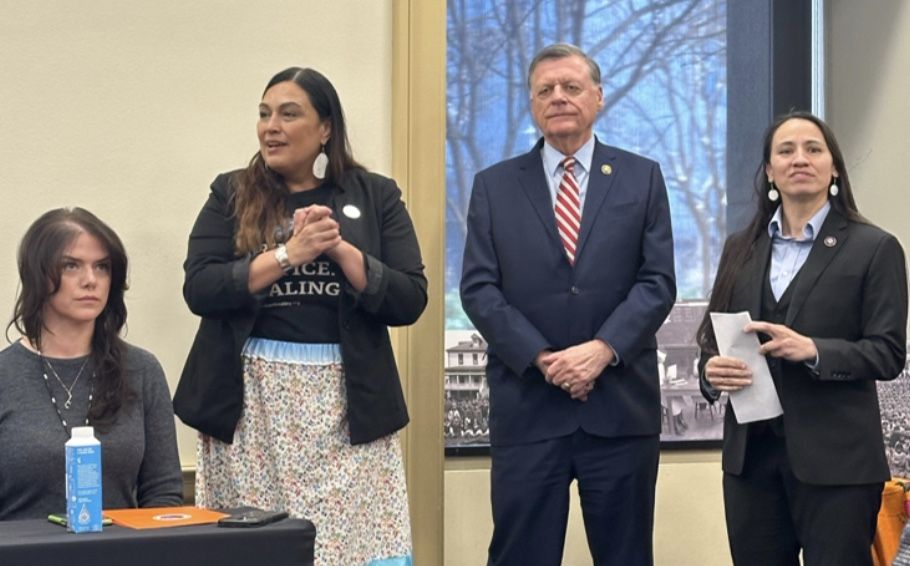
Representative Cole (R-OK) and Representative Davids (D-KS)
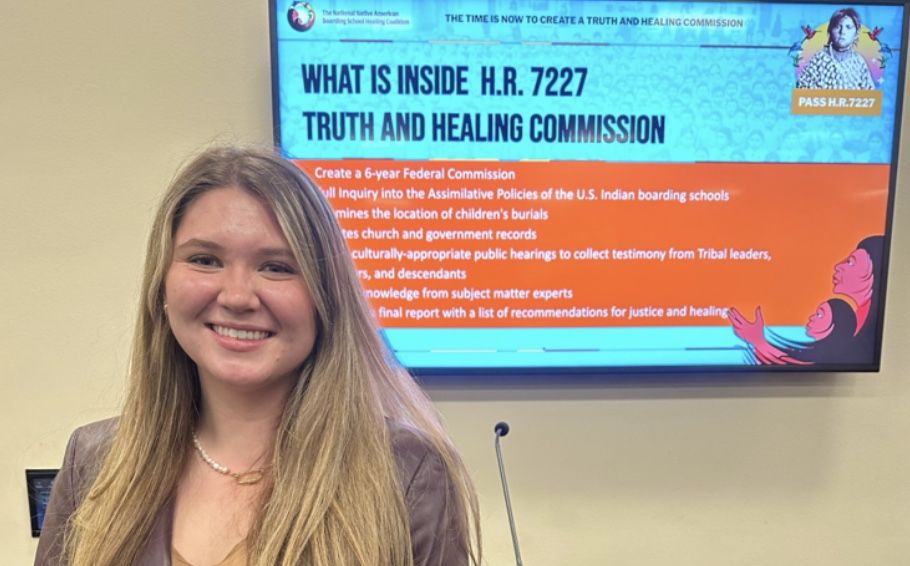
- Go deeper: Reps. Cole and Davids reintroduced this legislation to investigate, document, and report on the histories of Indian boarding schools, Indian boarding school policies, and long-term impacts on Native communities.
On February 8, the Senate Committee on Indian Affairs (SCIA) held a hearing that includes an NCUIH-endorsed bill, the IHS Workforce Parity Act (S.3022), which expands healthcare provider access to IHS scholarship and loan repayment programs.
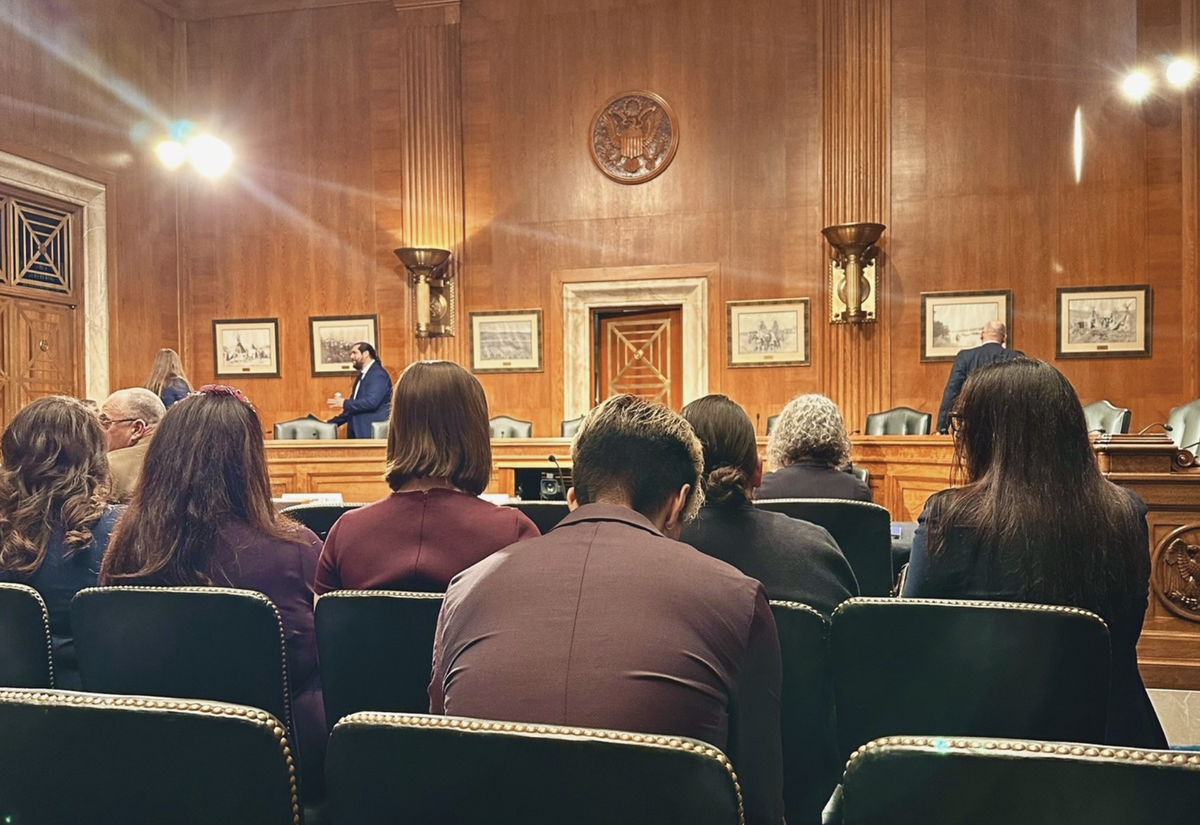
Senate Committee on Indian Affairs (SCIA)
- What they’re saying: The Honorable Melanie Anne Egorin, Assistant Secretary of Legislation for HHS, testified that this legislation “builds capacity and it builds the ability to recruit and retain [health care providers], which is a critical need.”
- What’s next: The bill awaits a full committee vote and NCUIH will continue to advocate for this bill to become law.
On January 25, NCUIH represented UIOs at the Health Resources & Services Administration (HRSA) Maternal Health & Mortality Initiative launch event.

NCUIH Public Policy Manager, Mary Jomia, Antigone Dempsey, Division of Policy and Data Director, HRSA/HHS, Acting Senior Advisor, Amelia Khalil.
- Why it matters: The initiative will strengthen HRSA’s maternal health work and maximize the impact of HRSA grants and programs to address maternal health disparities, including in American Indian and Alaska Native communities.
On January 24, NCUIH represented UIOs at the Sanofi Health Equity Heroes reception.

NCUIH VP of Policy and Communications, Meredith Raimondi, NCUIH Public Policy Manager, Mary Jomia.
IHS National Tribal Budget Formulation Workgroup Recommends $55.9 Billion for IHS in FY 2026
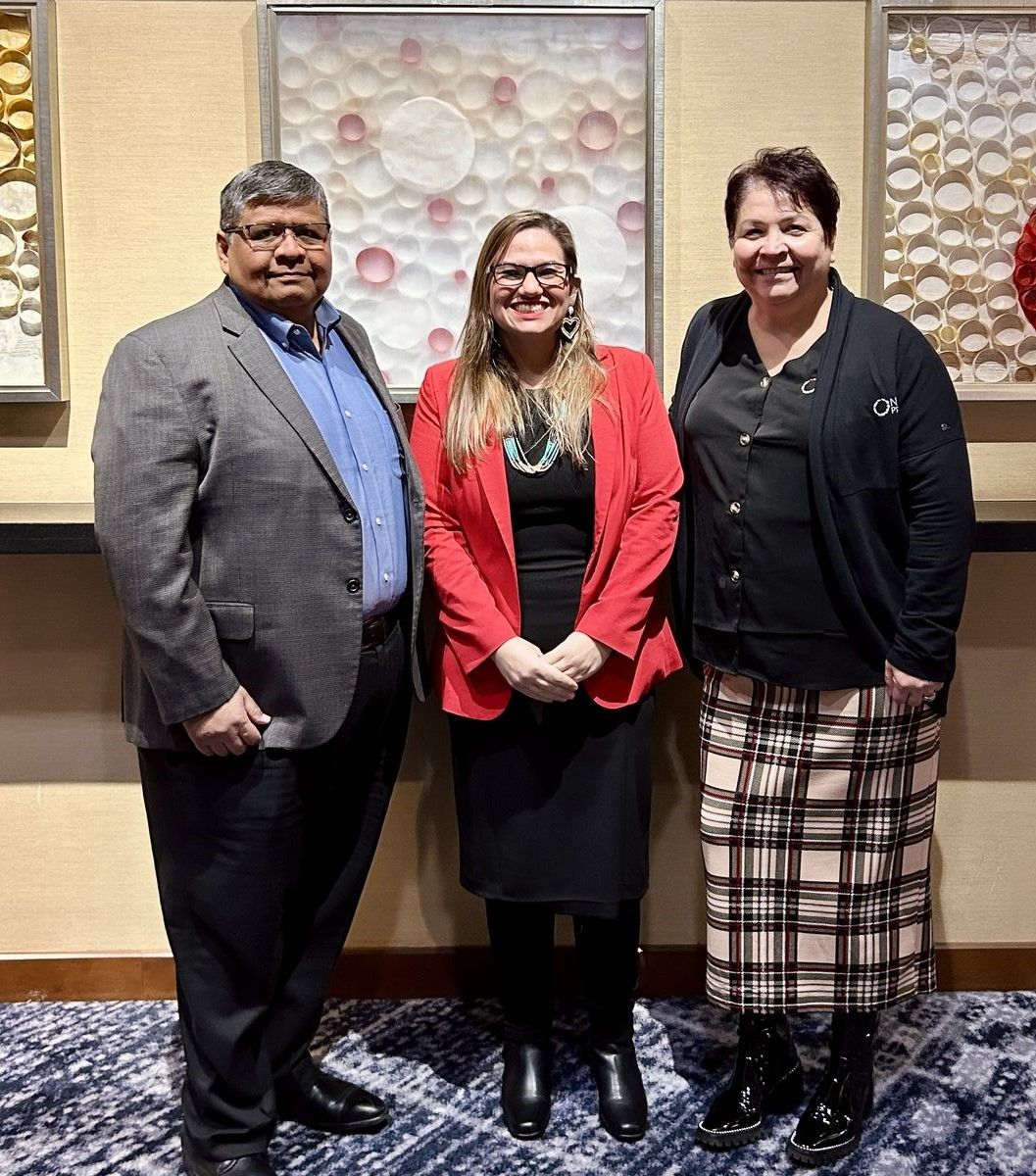
NCUIH President-elect Walter Murillo (Choctaw), CEO Francys Crevier (Algonquin), and NCUIH board member Maureen Rosette (Chippewa Cree)
On January 24-25, IHS held its’ FY 2026 National Tribal Budget Formulation Workgroup Area Report Webinar where Tribal leaders from all 12 IHS Areas and leaders from Native organizations presented their budget priorities and hot issues for FY 2026. Meredith Raimondi, VP of Policy and Communications, presented on NCUIH’s priorities.
On February 12-13, NCUIH President-elect Walter Murillo (Choctaw), CEO Francys Crevier (Algonquin), and NCUIH board member Maureen Rosette (Chippewa Cree) joined the IHS National Tribal Budget Work Session where all of the Area’s budget recommendations are consolidated into a comprehensive set of national health priorities and budget recommendations. Mr. Murillo presented urban Indian health priorities.
- Tribes drive the budget formulation process to ensure the IHS budget reflects the evolving health needs of American Indian and Alaska Native people and communities.
- NCUIH always supports the Tribal Budget Formulation Workgroup budget request and advocates for full mandatory funding for IHS.
- NCUIH is grateful for the Tribal Budget Formulation Workgroup’s advocacy for a fully funded Indian health care system, including Urban Indian Organizations.
- The bottom line: Total Tribal recommendation for IHS for FY2026: $55.9 billion.
- The bottom line: Total Tribal recommendation for Urban Indian Health for FY2026: $765.5 million, $195.9 million less than the FY2025 request.
Go deeper: Visit our Policy Blog to learn more about specific NCUIH and Area Recommendations.
Monitoring the Bench: Supreme Court Updates from NCUIH
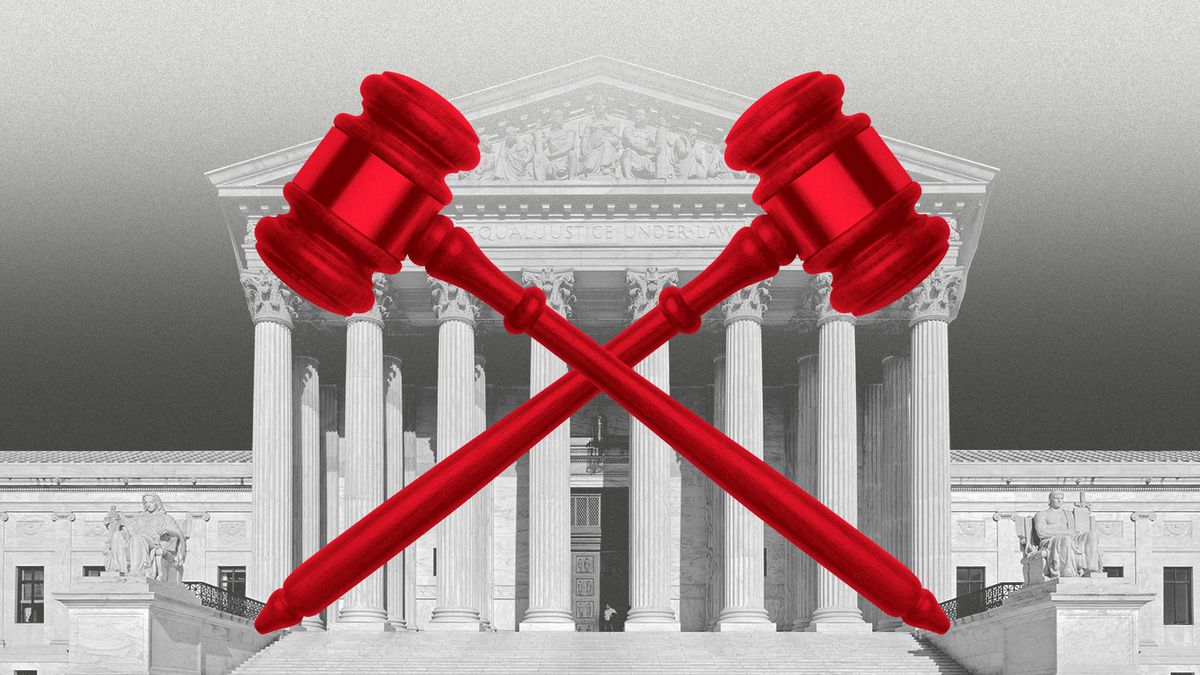
Becerra v. San Carlos Apache/Becerra v. Northern Arapaho Tribe (Consolidated)
- Issue: Whether IHS must pay “contract support costs” not only to support IHS-funded activities but also to support the Tribe’s expenditure of income collected from third parties.
- Relation to UIOs: No strong relation to UIOs because it relates to CSCs, but will affect Tribal healthcare facilities, and potentially restrict the scope of CSCs to cover services at Tribal facilities.
- Case Status: Oral Argument set for March 25.
- NCUIH Action: On February 14. NCUIH signed on to an amicus brief led by the National Indian Health Board in support of Respondent Tribes. The brief was submitted to the Court on February 19th.
Relentless, Inc. v. Department of Commerce and Loper Bright Enterprises v. Raimondo
- Issue: Whether the court should overrule Chevron v. Natural Resources Defense Council, or at least clarify that statutory silence concerning controversial powers expressly but narrowly granted elsewhere in the statute does not constitute an ambiguity requiring deference to the agency.
- Relation to UIOs: Both cases have the potential to overturn Chevron deference, which would open up administrative agencies to more litigation and create discrepancies in how regulations are enforced.
- Case Status: Oral Argument was held on January 17, 2024.
- NCUIH Action: Monitoring.
Corner Post, Inc. v. Board of Governors of the Federal Reserve System
- Issue: Whether a plaintiff’s Administrative Procedure Act claim “first accrues” under 28 U.S.C. § 2401(a) when an agency issues a rule — regardless of whether that rule injures the plaintiff on that date — or when the rule first causes a plaintiff to “suffer [] legal wrong” or be “adversely affected or aggrieved.”
- Relation to UIOs: This would determine when an injury accrues, which impacts the amount of time a challenge could be made against an agency’s action.
- Case Status: Oral Argument was held on February 20.
- NCUIH Action: Monitoring.
NCUIH Advocates for Tribal Sovereignty and Cultural Sensitivity in HHS Proposed Rule on Grantmaking & SAMHSA Native Behavioral Health Program
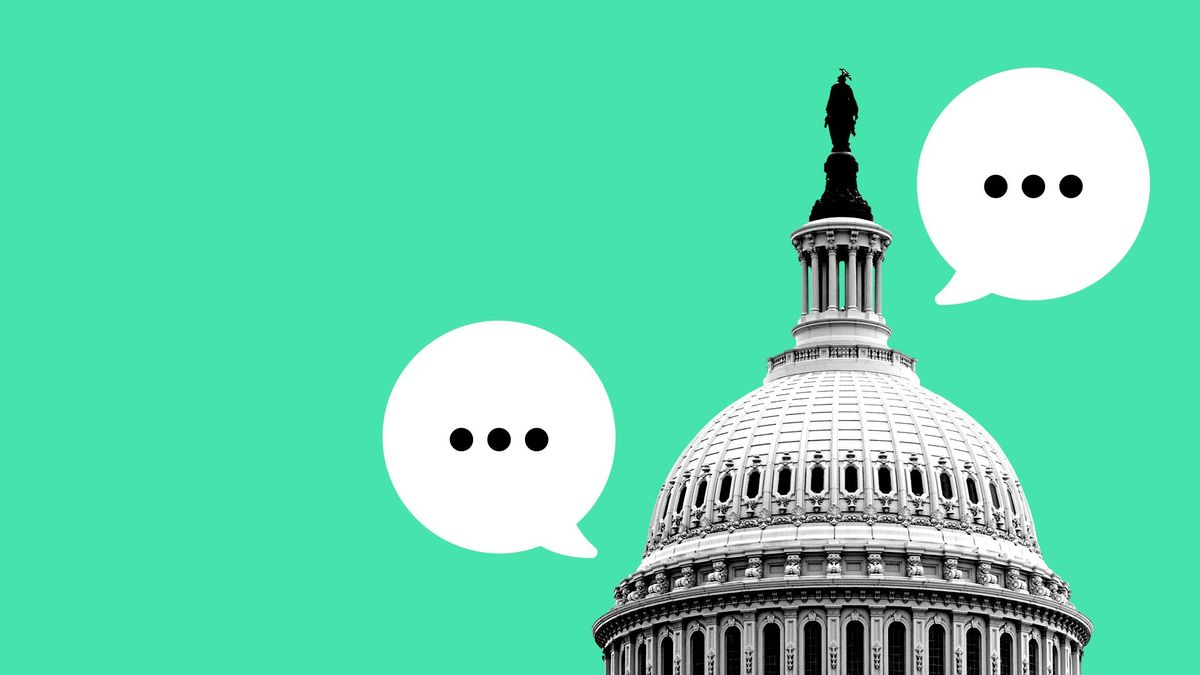
On January 18, NCUIH submitted comments to the Department of Health and Human Services (HHS) Office of Civil Rights (OCR) regarding its Proposed Rule on HHS Grants Regulation.
- The bottom line: NCUIH requested that HHS includes language in the proposed rule that clearly states that nothing in the rule will limit the ability of Tribes or UIOs to serve American Indian and Alaska Native people exclusively using HHS awards, and that OCR and HHS grant staff are properly trained on the unique political status of American Indian and Alaska Native people.
On January 31, NCUIH submitted comments to the Substance Abuse and Mental Health Services Administration (SAMHSA) Office of Tribal Affairs regarding its Behavioral Health and Substance Use Disorder Resources for Native Americans Program.
- The bottom line: NCUIH recommended that SAMHSA ensures noncompetitive Program awards across the I/T/U system, accounts for administrative duties in the funding formula, respects Traditional Healing and Indigenous Knowledge in the funding formula, ensures program measures do not impose additional burdensome reporting requirements, ensures that all information related to program application is widely available, seeks additional expert feedback from Tribal Advisory Committees and Federal Agencies, and continues to engage with and incorporate UIO feedback in the Program’s development.
Upcoming Urban Confer Comment Opportunities

IHS Urban Confer on Fentanyl and Opioid Supplemental
- On February 2, 2024, IHS held an Urban Confer seeking guidance and recommendations on the potential implementation of $250 million included in the Administration’s recent supplemental request to support funding for fentanyl and opioid programming.
- IHS intends to make this funding available to the whole I/T/U system.
- Written comments can be emailed to urbanconfer@ihs.gov, with the following subject line: Supplemental Request for Fentanyl and Opioid Abuse Funding.
- The comment submission deadline for this Urban Confer is Monday, March 4, 2024.
IHS Urban Confer on Health IT Modernization
- The first session was held on February 8 on Enterprise Collaboration Group (ECG). IHS provided an overview of the ECG, a body that gathers insights from subject matter experts who are end-users of the enterprise EHR. ECGs will be broken up into Domain Groups comprised of EHR users in the I/T/U. 60 Tribes and 14 UIOs have submitted a statement of interest (SOI) to indicate their interest in partnering with IHS on the shared enterprise solution.
- Written comments are can be emailed within 30 days following each session to urbanconfer@ihs.gov – SUBJECT LINE: Health IT Modernization.
- The comment submission deadline for this Urban Confer is March 8, 2024.
Upcoming Events and Important Dates

Upcoming Events:
- Feb 26 – 29– VA Advisory Committee on Tribal and Indian Affairs
- Feb 27 – IHS National Tribal Advisory Committee (NTAC) on Behavioral Health Q1 Meeting
- Feb 28 – NCUIH Webinar – Urban Voices Amplified: Empowering Native Votes
- March 4 – Comments due for IHS Urban Confer on $250 Million Fentanyl and Opioid Programs
- March 5 – MMPC Face-to-Face Meeting
- March 5 – 6 – Tribal Leaders Diabetes Committee (TLDC) Meeting (hybrid)
- March 6 – 7 – Centers for Medicare & Medicaid Services (CMS) Tribal Technical Advisory Group (TTAG) Face-to-Face Meeting (hybrid)
- March 18 – 19 – American Academy of Pediatrics (AAP) Committee on Native American Child Health (CONACH) Meeting
- March 19 – 21 – IHS 2024 National Combined Council Virtual Meeting
ICYMI:
- On January 18, IHS hosted a Tribal Consultation on the Definition of Indian Tribe. Consulting on what definition of Indian Tribe should be included in the updated IHS Tribal Consultation Polic9 (List Act Definition (25 U.S.C. § 5130); or ISDEAA Definition (25 U.S.C. § 5304(e))).
Recent Dear Tribal Leader Letters (DTLLs) and Dear Urban Leader Letters (DULLs)
-
January 18: IHS DTLL/DULL – IHS – Tribal Consultation/Urban Confer on Health IT Modernization
– This letter informs Tribal/UIO leaders about a series of four Tribal Consultation and Urban Confer sessions in calendar year 2024 on Health IT Modernization.
-The first session was held on February 8 on Enterprise Collaboration Group (ECG).
-Session 2: Deployment and Cohort Planning (virtual) will be held on May 9, 2024 from 1:30 p.m. – 3:00 p.m. ET. Register here.
-Session 3: Multi-Tenant Domain Considerations (virtual) will be held on August 8, 2024 from 1:30 p.m. – 3:00 p.m. ET. Register here.
-Session 4: Site Readiness and Training (hybrid) will be held on November 7, 2024 from 1:30 p.m. – 3:00 p.m. ET. Register here.
-
January 22: IHS DULL – IHS Fiscal Year 2023 Budget to Support UIOs
– The purpose of the FY23 Budget Report is to provide financial transparency and accountability for the Urban Indian Health Budget line. The report details the funds distributed by OUIHP and IHS Area Offices. View the budget report here.
– The funds have been allocated for program administration, contract and grant awards, HIT, and Urban Indian Health initiatives.
-
January 22: IHS DTLL/DULL – IHS Agency Accomplishments During the First Quarter of Fiscal Year 2024
-The IHS FY 2024 First Quarter Performance Report was released. View the report here.
-Some of the achievements included: IHS receiving its first-ever advance appropriations, progress to modernize HIT, and a breakthrough partnership with the U.S. Department of Veterans Affairs.
-
January 31: IHS DTLL/DULL – Director Writes to Communicate Key Leadership Changes
-
February 15 – IHS DTLL/DULL – The IHS Chief Medical Officer shares an update on efforts by the Agency to address the syphilis epidemic in Indian Country.
-IHS data shows that syphilis screening in IHS facilities has increased by 98 percent from 2022 to 2023.
-The letter includes resources and an STI toolkit for facilities to use to combat the syphilis epidemic.
One last thing, check out these upcoming funding opportunities:
-
National Institute of Food and Agriculture, U.S. Department of Agriculture – The Gus Schumacher Nutrition Incentive Program – Produce Prescription Program
– Deadline: February 28, 2024 (Apply)
-
IHS – Indian Health Service Scholarship Program (IHSSP)
-Deadline: February 28, 2024 (Apply)
-
AmeriCorps – Forest Corps Recruiting Native Youth for Opportunities to Support Cultural Resource Management Projects
– Deadline: February 29, 2024 (Apply)


